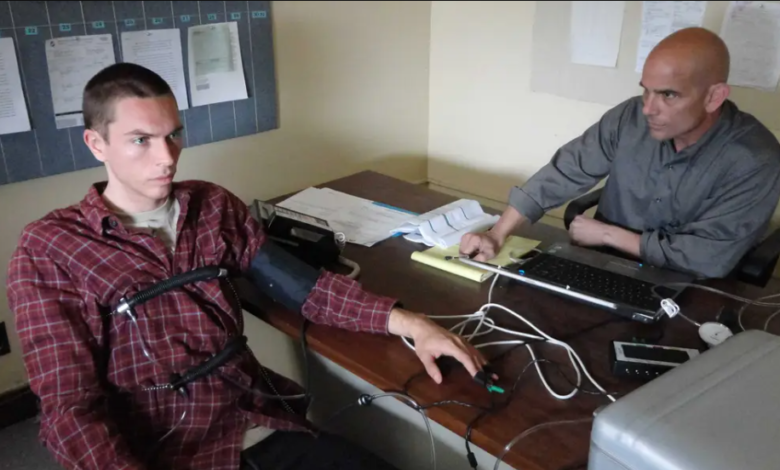Lie Detector Testing in Minnesota: A Comprehensive Look at Polygraph Tests

Polygraph tests, commonly known as lie detector tests, are tools used to determine whether a person is being truthful by measuring physiological responses during questioning. These responses typically include changes in blood pressure, heart rate, respiratory rate, and skin conductivity. The premise behind the polygraph is that deceptive answers trigger involuntary physical responses due to stress or anxiety. In Minnesota, the use of polygraph testing is permitted in certain legal and employment contexts, but it is also subject to regulation and ongoing debate over its reliability and ethical application. From law enforcement investigations to pre-employment screening in specific industries, polygraph tests continue to play a role in decision-making processes. However, concerns about the scientific validity and legal standing of polygraph results have led to limitations on their admissibility in court and their use in private sector employment.
How Polygraph Tests Are Conducted
A polygraph examination typically begins with a pre-test interview, during which the examiner explains the procedure, discusses the questions to be asked, and works to establish a baseline of physiological responses. The subject is then connected to a machine using sensors that monitor breathing, pulse, and skin conductivity. During the actual test, the examiner asks a mix of relevant, irrelevant, and control questions to compare bodily responses and identify patterns that may indicate deception. The process concludes with an analysis of the results, which the examiner interprets to assess truthfulness. In Minnesota, as in other states, polygraph tests must be administered by a trained and licensed professional, particularly when used in law enforcement or government settings. The quality and reliability of the test depend significantly on the examiner’s training, the structure of the questions, and the subject’s mental and physical condition during the test.
Legal Regulations on Polygraph Use in Minnesota
Lie detector In Minnesota, the use of polygraph tests is governed by both state and federal laws. The federal Employee Polygraph Protection Act (EPPA) restricts private employers from requiring lie detector tests for job applicants or employees, with limited exceptions in sectors such as security services or positions involving controlled substances. Minnesota generally follows these federal guidelines, and any use of polygraphs in employment must comply with strict procedural rules, including providing written notice and obtaining consent. Law enforcement agencies in Minnesota are permitted to use polygraph testing during criminal investigations or as part of pre-employment screening for positions in police departments or other public safety roles. However, the results of these tests are not admissible in Minnesota courts unless both parties agree, which rarely occurs. The Minnesota judicial system remains cautious about using polygraph evidence due to concerns about its accuracy and the potential for influencing juries unfairly.
Accuracy and Criticism of Polygraph Testing
While polygraph advocates claim high levels of accuracy—some citing up to 90% under ideal conditions—scientific consensus remains skeptical. A major critique of polygraph testing is that it measures physiological responses to stress rather than direct indicators of truth or falsehood. A truthful person who is anxious may produce responses that appear deceptive, while a deceptive person who is calm and composed might pass undetected. In Minnesota, this has led to caution among legal professionals and employers when considering the outcomes of a polygraph exam. Courts are particularly wary of admitting polygraph results, given their potential to mislead jurors or to give undue weight to evidence that lacks consistent scientific support. Additionally, ethical questions arise when polygraph results are used to make critical decisions about employment or criminal responsibility, especially when the results are not always reliable or conclusive.
See also: Using Hormone Optimization to Support Immune Health
Applications and the Future of Polygraph Tests in Minnesota
Despite its limitations, the polygraph remains a commonly used tool in Minnesota, particularly in the realm of law enforcement. Police departments may use polygraph testing to assess the credibility of suspects or witnesses, as well as to evaluate job candidates during background checks. While not definitive, the polygraph can be a helpful investigative aid when used alongside other methods. Looking forward, advancements in technology may lead to more accurate and less invasive forms of lie detection. Innovations such as voice stress analysis, brainwave monitoring, and artificial intelligence-driven behavioral assessments are being explored as potential alternatives or supplements to the traditional polygraph. Until these methods become scientifically validated and legally accepted, however, the polygraph will likely continue to be used in its current capacity within the boundaries established by Minnesota law.
In summary, polygraph tests in Minnesota serve as investigative and screening tools with specific applications in law enforcement and select employment contexts. While they can provide useful insights, their limitations in accuracy and legal standing require cautious use. Individuals subjected to polygraph testing in Minnesota should be aware of their rights, the purpose of the test, and the implications of the results, recognizing that these tests are not foolproof measures of truth.
Location in Minnesota
St Paul – 445 Minnesota St #1500, St Paul, MN 55101





